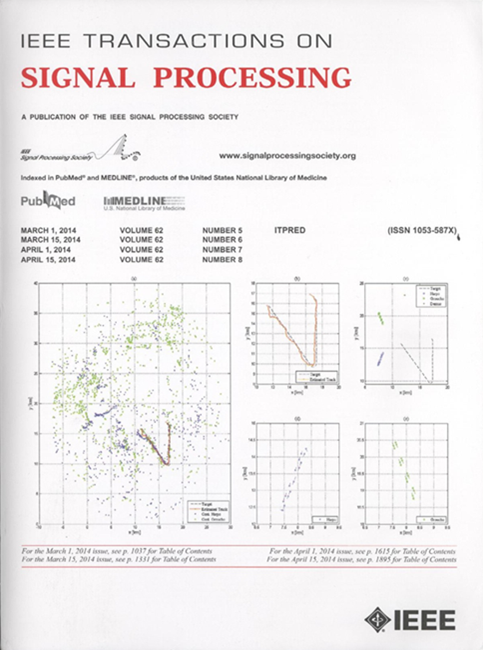具有确定性点过程先验的时间点过程贝叶斯混合模型
IF 4.6
2区 工程技术
Q1 ENGINEERING, ELECTRICAL & ELECTRONIC
引用次数: 0
摘要
异步事件序列聚类的目的是以一种无监督的方式对相似的事件序列进行分组。为了解决这一问题,人们提出了时间点过程的混合模型,但它们往往存在过拟合的问题,导致聚类生成过多,缺乏多样性。为了克服这些局限性,我们提出了具有确定性点过程先验(TP ${}^{2}$DP ${}^{2}$)的时间点过程贝叶斯混合模型,并据此提出了一种基于条件Gibbs抽样的高效后验推理算法。我们的工作为事件序列聚类提供了一个灵活的学习框架,能够自动识别潜在的聚类数量,并对具有相似特征的序列进行准确分组。它适用于广泛的参数时间点过程,包括基于神经网络的模型。在合成数据和真实数据上的实验结果表明,我们的框架可以产生更少但更多样化的混合组件,并在多个评估指标上取得出色的结果。本文章由计算机程序翻译,如有差异,请以英文原文为准。
A Bayesian Mixture Model of Temporal Point Processes With Determinantal Point Process Prior
Asynchronous event sequence clustering aims to group similar event sequences in an unsupervised manner. Mixture models of temporal point processes have been proposed to solve this problem, but they often suffer from overfitting, leading to excessive cluster generation with a lack of diversity. To overcome these limitations, we propose a Bayesian mixture model of Temporal Point Processes with Determinantal Point Process Prior (TP ${}^{2}$DP ${}^{2}$ ) and accordingly an efficient posterior inference algorithm based on conditional Gibbs sampling. Our work provides a flexible learning framework for event sequence clustering, enabling automatic identification of the potential number of clusters and accurate grouping of sequences with similar features. It is applicable to a wide range of parametric temporal point processes, including neural network-based models. Experimental results on both synthetic and real-world data suggest that our framework could produce moderately fewer yet more diverse mixture components, and achieve outstanding results across multiple evaluation metrics.
求助全文
通过发布文献求助,成功后即可免费获取论文全文。
去求助
来源期刊

IEEE Transactions on Signal Processing
工程技术-工程:电子与电气
CiteScore
11.20
自引率
9.30%
发文量
310
审稿时长
3.0 months
期刊介绍:
The IEEE Transactions on Signal Processing covers novel theory, algorithms, performance analyses and applications of techniques for the processing, understanding, learning, retrieval, mining, and extraction of information from signals. The term “signal” includes, among others, audio, video, speech, image, communication, geophysical, sonar, radar, medical and musical signals. Examples of topics of interest include, but are not limited to, information processing and the theory and application of filtering, coding, transmitting, estimating, detecting, analyzing, recognizing, synthesizing, recording, and reproducing signals.
 求助内容:
求助内容: 应助结果提醒方式:
应助结果提醒方式:


